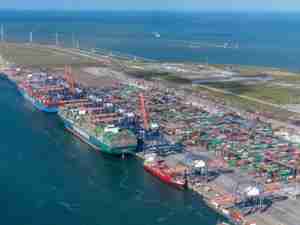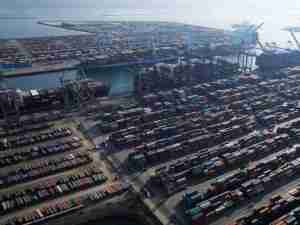West Coast ports reopen as labor secretary arrives for talks
By: Reuters | Feb 17 2015 at 05:34 PM | Ports & Terminals
U.S. West Coast ports that were closed to incoming cargo vessels during the holiday weekend reopened in full as Labor Secretary Tom Perez arrived in San Francisco seeking to broker a settlement ending months of shipping disruptions.
Perez was sent to meet with the two sides in the conflict at the behest of President Barack Obama, who has come under mounting pressure to weigh in on a labor dispute that has cascaded through the U.S. commercial supply chain and beyond.
But there was no immediate word on exactly when or under what conditions he would join in talks between the International Longshore and Warehouse Union, representing 20,000 dockworkers, and the bargaining agent for shipping companies and terminal operations, the Pacific Maritime Association.
Neither side has spoken about the negotiations since agreeing on Friday to honor a news blackout requested by a federal mediator. No face-to-face talks between the parties are believed to have occurred since then.
The PMA previously said the talks, which have dragged on for nine months, hit a new snag on a union demand for changes in the system of binding arbitration of contract disputes. The union has insisted the two sides are near an accord.
Operations to load and unload cargo vessels at all 29 West Coast ports were halted through the holiday weekend as of Friday night but resumed Tuesday morning, port authorities said. More than 30 freighters idled through the weekend waiting for berths to open outside the adjacent ports of Los Angeles and Long Beach, the nation’s two busiest cargo hubs.
It was the longest such suspension in the months-long labor dispute. Vessel operations were likewise suspended for two days last weekend, and again last Thursday, which was a union holiday.
But shippers said work at the ports continued in the dockyards, rail yards and terminal gates to move cargo already unloaded from ships.
Domino Effect
The affected ports handle nearly half of all U.S. maritime trade and more than 70 percent of imports from Asia. A domino effect has rippled through much of the U.S. economy, extending to agriculture, manufacturing, retail and transportation.
California farmers have been hit especially hard, with port disruptions posing a major barrier to perishable goods headed to overseas markets and export losses estimated to be running at hundreds of millions of dollars a week.
Asian exporters faced rising shipping rates and some have been forced to reroute their goods by more costly air freight. One automaker, Japan’s Honda Motor Co (7267.T), said on Sunday it would slow production for a week at plants in Ohio, Indiana and the Canadian province of Ontario, because of port-related delays in parts shipments to those factories.
The shippers have said they were curtailing port operations because they were no longer willing to pay union workers premium overnight, holiday and weekend wages during work slowdowns the companies have accused the union of orchestrating.
The union has blamed changes in shipping practices instituted by the carriers themselves for causing worsening backlogs and say that suspending vessel operations has only made matters worse.
Port officials say it will take six to eight weeks to clear the immediate backlog of cargo containers piled up on the docks once the dispute is settled and several months for freight traffic to return to a normal rhythm.
Shipping industry experts say a longer-term concern is that American export business lost to other countries and other ports, may not return once the crisis is over.
The retail and manufacturing industries have projected that a full, extended shutdown of the ports could cost the U.S. economy some $2 billion a day.










